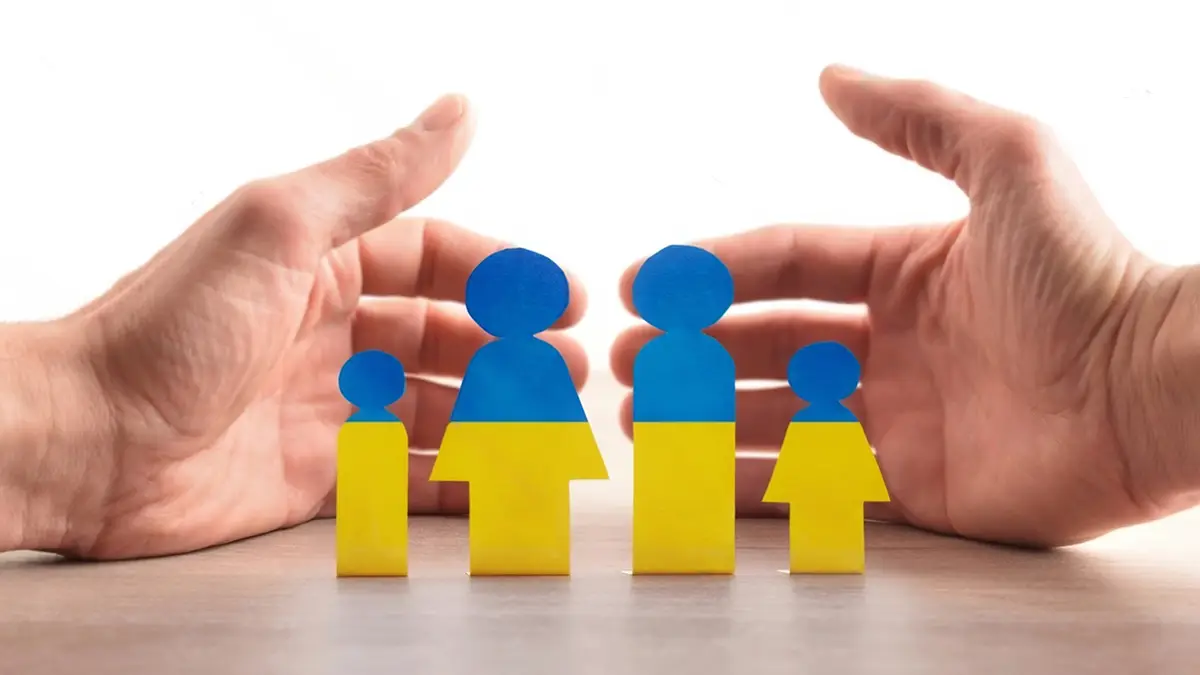
Subsistence allowance and reporting obligations
The war in Ukraine, that started in 2022, changed a lot of lives. Many Ukrainians were forced to leave their homes and relocate. Those, who decided to seek shelter in the Netherlands, are entitled to a certain support.
Subsistence allowance
When you come to the Netherlands as a refugee from Ukraine and you lack your own income, the Netherlands provides money for clothing and food and other personal expenses known as a Subsistence allowance. This financial support is available to both adults and children for as long as they do not have their own income. The amount of money you receive depends on your family composition and whether the reception center where you are staying provides meals for you.
Information for those who are entitled
In case you are entitled to receive the subsistence allowance, the monthly amount you receive depends on your age and family composition. Regardless of your situation, each person will receive €62.66 for clothing and €80.91 for other expenses per month.
If you are single, you get €242.48 food money per month.
If you are 18 years old and older and:
- There are 2 of you: €242.48 food money per person per month.
- There are 3 of you: €193.98 food money per person per month.
- There are 4 or more of you: € 169.74 food money per person per month.
If you are under 18 years old and:
- There are 2 of you: €200.65 food money per person per month.
- There are 3 of you: €160.64 food money per person per month.
- There are 4 or more of you: € 140.34 food money per person per month.
For more information on subsistence allowance amounts from 1 July 2024, go to the official website of the Dutch government.
When you can be denied living allowance
Subsistence allowance shall not be received if you have your own income, coming from working or any other form of income. This rule is applied to all refugees from Ukraine that are 18 years old and older who earn money. The amount of what you are earning, no matter how little it can be, does not matter.
Other cases why living allowance may be denied, apart from cases where you have income, include:
- Cases when you receive income from an unemployment benefit (WW-benefit)
- Cases when you receive benefits because you are long-term sick or unable to work
You contribute financially for your stay in a reception center if you have your own income
If you have an income as mentioned above and reside in a municipal reception center (GOO), you will begin paying a contribution of your own starting July 1, 2024. This payment goes to the municipality where you live to help cover part of the costs for your reception center, including utilities such as gas, water, and electricity. Additionally, if meals are provided at your location, you will need to contribute towards that as well.
You will pay €105 per person for gas, water, and electricity if you have an income and are 18 years or older. For a family with two adults and children, the maximum payment is €210, which is twice €105.
If meals are cooked for you at your location, you must pay an additional amount of up to €242.48. Even if you do not (always) eat them. Does a family consist of two persons of 18 years or older and children? Then a family pays a maximum of twice the maximum amount of € 242.48. That is € 484.96.
The government is introducing this co-payment to ensure fairness, as other refugee groups in the Netherlands already contribute if they have an income. After paying your own contribution, you will keep at least as much money as if you were not working and only receiving a living allowance.
You are required to provide information about your income and family
You are obliged to inform the municipality about your income and family composition, including any changes. Failure to provide this information or hiding income can result in the municipality withdrawing your allowance and requiring you to pay your own contribution, regardless of whether you have an income or not.
More information can be found on the help for refugees website and the official website of the Dutch government.
Failure to provide information about your income and family
If a person fails to provide information on their income and family situation, according to the Regulation on the reception of displaced persons from Ukraine (“Regeling opvang ontheemden Oekraïne”), certain penalties may be applied. According to Article 2a on the obligation to report income, a displaced person (ontheemde), or a refugee, is required to promptly inform the mayor (burgemeester) about their income and household composition. This must be done either on their own initiative or within two weeks of the mayor’s request. Any changes in income or household composition must also be reported immediately.
Article 7 and Article 8 on penalties for non-compliance specify that if a refugee does not comply with the reporting requirements listed in Article 2a, the mayor has the authority to take several actions: the authority may withdraw or limit the financial support, and can reclaim any financial benefits that were wrongly provided due to non-disclosure. The provision on withdrawal states that in case a refugee or their adult family member fails to provide the requested information about income and household composition for two weeks, or if they conceal income, the mayor can withdraw or limit the financial allowances and other support provisions (Article 7, 2c, 2d; Article 8, 1c, 1d). This applies to the next month following the discovery of non-compliance. Provision concerning the recovery of already provided support states that the mayor, or the authority, can reclaim any financial benefits that were wrongly provided due to non-disclosure or incorrect disclosure of income (Article 7, 6; Article 8, 3). The amount reclaimed will not exceed the benefits that were overpaid. Moreover, if the non-compliance with income reporting is established, a monthly fee of €105.00 per adult refugee or their adult family member can be imposed, up to a maximum of €210.00 per family (Article 8, 2).
In summary, refugees are highly supported by the government of the Netherlands that provides people with financial support. However, failing to inform the municipality about income can lead to withdrawal or limitation of financial and other support, reclamation of overpaid benefits, and the imposition of additional financial penalties.






